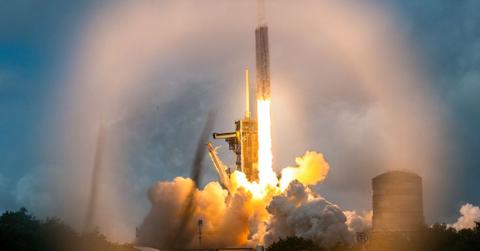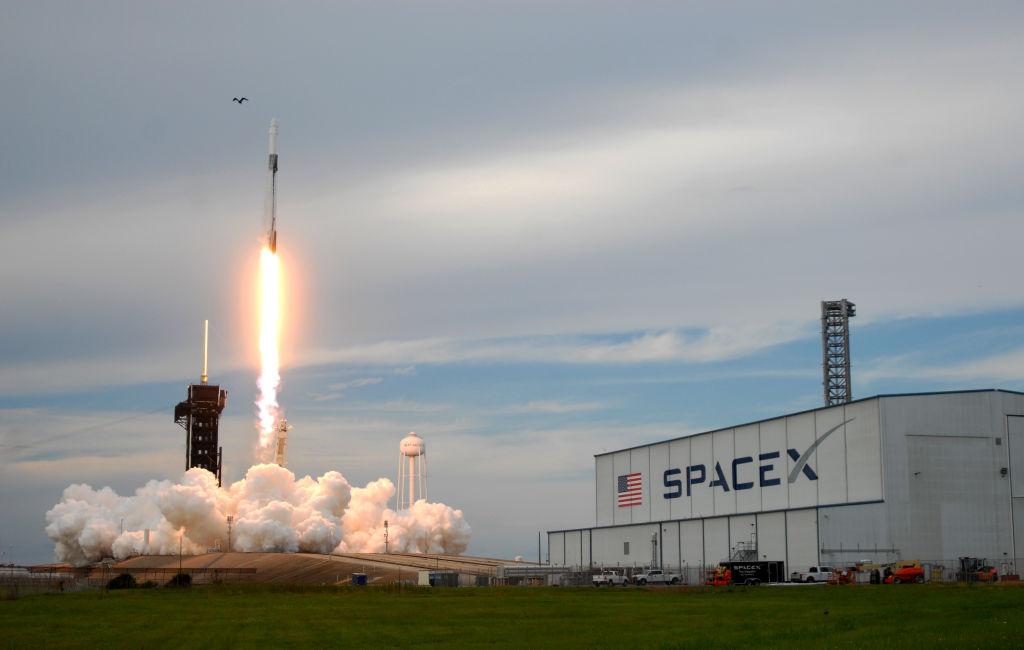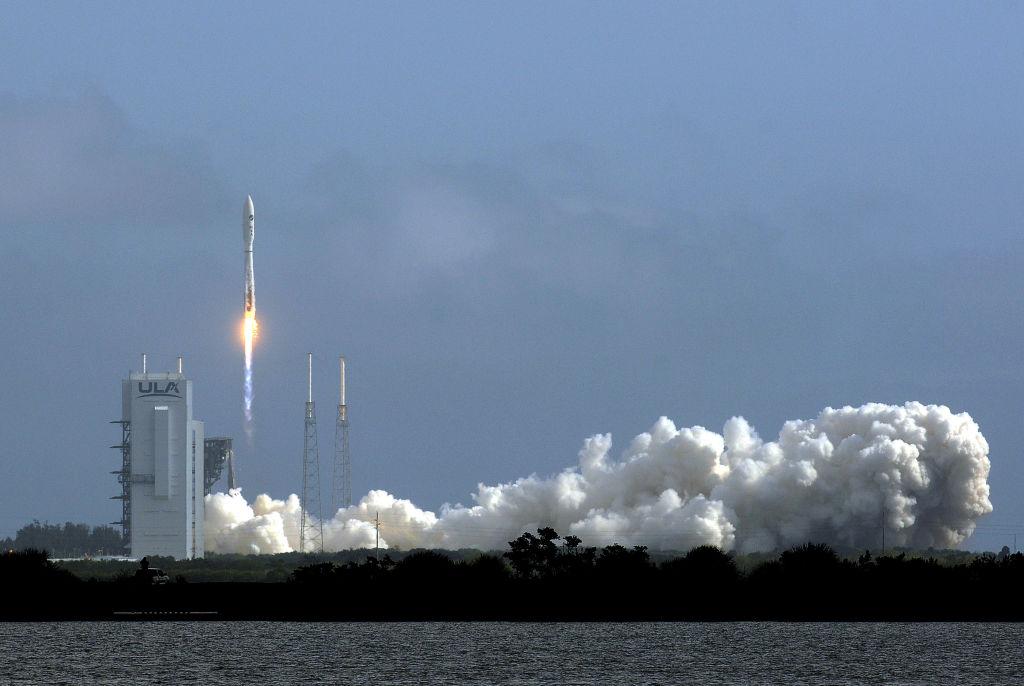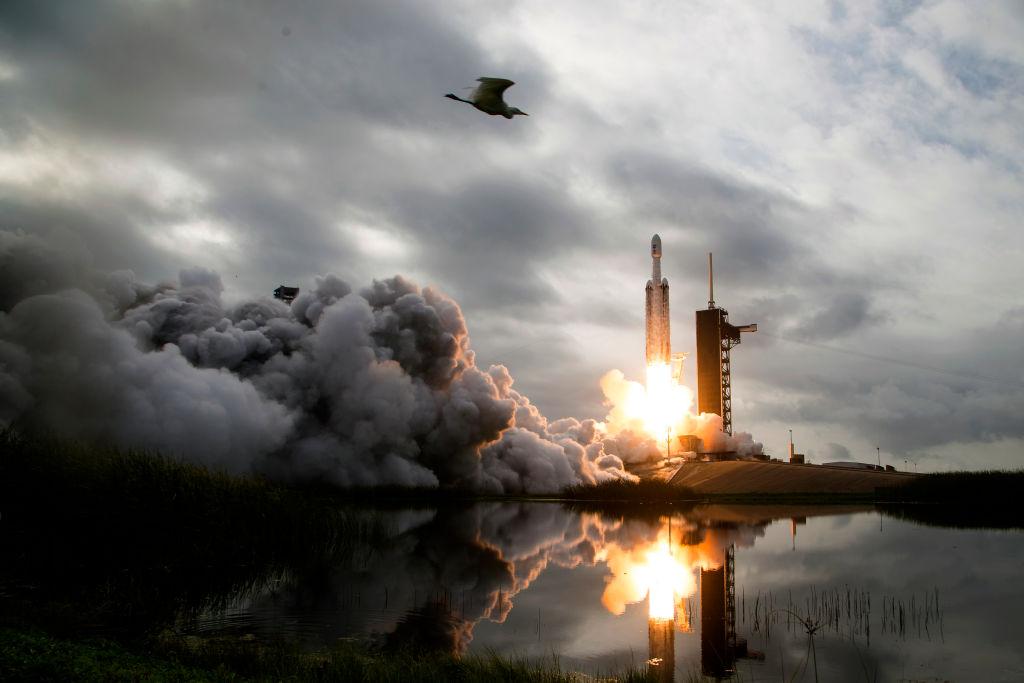Why Central Florida Residents Are Hearing Sonic Booms — and Will Keep Hearing More
Published Dec. 7 2023, 1:34 p.m. ET

The Gist:
- A sonic boom is a sound similar to thunder, caused by an object moving faster than the speed of sound, per the Air Force.
- Billionaire Tesla head Elon Musk is the founder of SpaceX, one of the perpetrators, along with NASA, of sonic booms along Central Florida.
- The Space Coast is an area of Florida so-named due to its closeness to two rocket launch points: the Kennedy Space Center and Cape Canaveral Space Force Station.
The mere hourlong drive from Disney may be a selling point, but residents of Florida's Space Coast may be regretting their close proximity to Kennedy Space Center (KSC) and Cape Canaveral Space Force Station, after a series of sonic booms caused by space launches and landings have been startling the public at random hours in 2022 and 2023. The billionaire-funded space race is partly to blame.
Public awareness picked up steam in May 2023, when SpaceX advised Central Floridians that the sonic booms that have been waking them are poised to continue. On the heels of that month's Axiom Mission 2, Florida's WESH 2 NBC affiliate reported that NASA's commercial crew program will continue growing, meaning more sonic booms for the foreseeable future.

In May 2023, SpaceX caused sonic booms in Central Florida.
Private space missions have been made possible thanks to a combination of unholy amounts of money and resources shared by NASA (flight facilities), SpaceX (rockets), and Axiom Space (commercial astronaut crews).
Axiom Space, the builders of the world's first commercial space station, is a private company that has partnered with NASA and SpaceX to research and test technologies that make commercial space transportation possible.
Two of the six SpaceX facilities are located in Florida, including the Cape Canaveral Space Force Station and the Kennedy Space Center's Launch Complex 39A, more famously known as the site of where the Apollo and Space Shuttle programs took place.
The Axiom Mission 2, which took flight in May 2023, marked the second occasion of a private mission to the International Space Station, following the Axiom Mission 1 launch in April 2022 and preceding the all-European Axiom Mission 3 in January 2024. To date, the second mission is the only one to feature a female astronaut, as Dr. Peggy Whitson served as the flight's commander following a record-setting and prestigious career at NASA.
Per NPR, the three astronauts accompanying Whitson were paying customers. Though, according to Space, that designation is a bit misleading; the three astronauts accompanying Whitson possess aerospace engineering and biomedical expertise.
Vanity aside, NPR reports the four-person team conducted 20-plus experiments over the nine-day mission, which should aid in informing the health and safety of passengers on future private space missions.

In November 2022, the U.S. Space Force was the culprit of sonic booms heard in Central Florida.
Six months prior, in November 2022, the Kennedy Space Center oversaw the landing of a Space Force test vehicle after it finished 908 days in orbit, having launched in May 2020 from Cape Canaveral Space Force Station.
Per Fox 35 Orlando, residents were shaken (literally and figuratively) by the sonic boom caused by the vehicle's return, with residents reporting various parts of their homes rattling shortly after 5:00 a.m. The Space Force announced a year later that the seventh iteration of the test vehicle is scheduled to launch in December 2023.

Why don't more residents outside of Central Florida hear sonic booms?
Per a NASA fact sheet, a general rule of thumb is that a sonic boom has a reach of approximately 1 mile for every 1,000 feet of altitude the aircraft has reached. Thus, a rocket that has reached 50,000 feet in altitude and is traveling faster than the speed of sound would in theory produce a sonic boom that spans a 50-mile radius.
Per the Federal Aviation Administration, the remote location of launch sites, often by bodies of water, is by design: in the unfortunate event that failure occurs, the chances of spacecraft parts or an explosion reaching civilians and their homes is lessened.
Furthermore, there are only a handful of NASA-operated ground facilities in the U.S., and even fewer sites where launches occur. Aside from the two in Florida, NASA lists the Vandenberg Space Force Base along the central coast in California, the Wallops Flight Facility in Maryland, the Kwajalein site between Hawaii and Australia, and more potentially in the future.